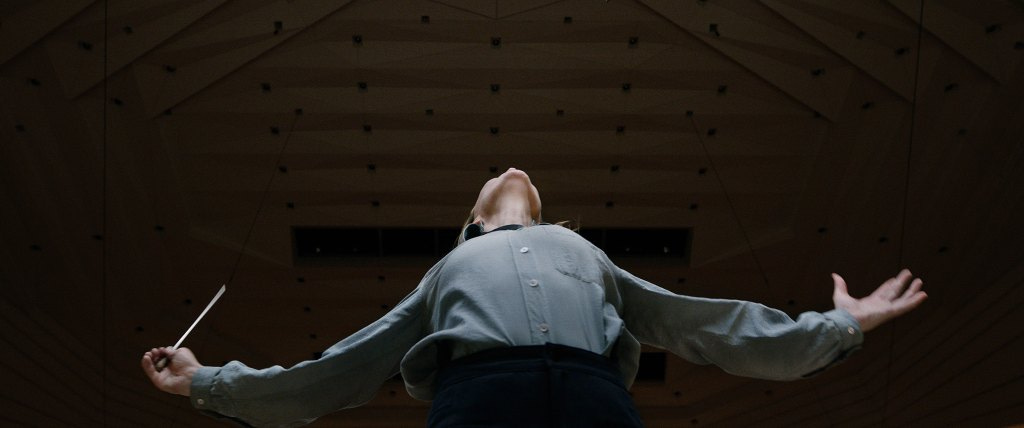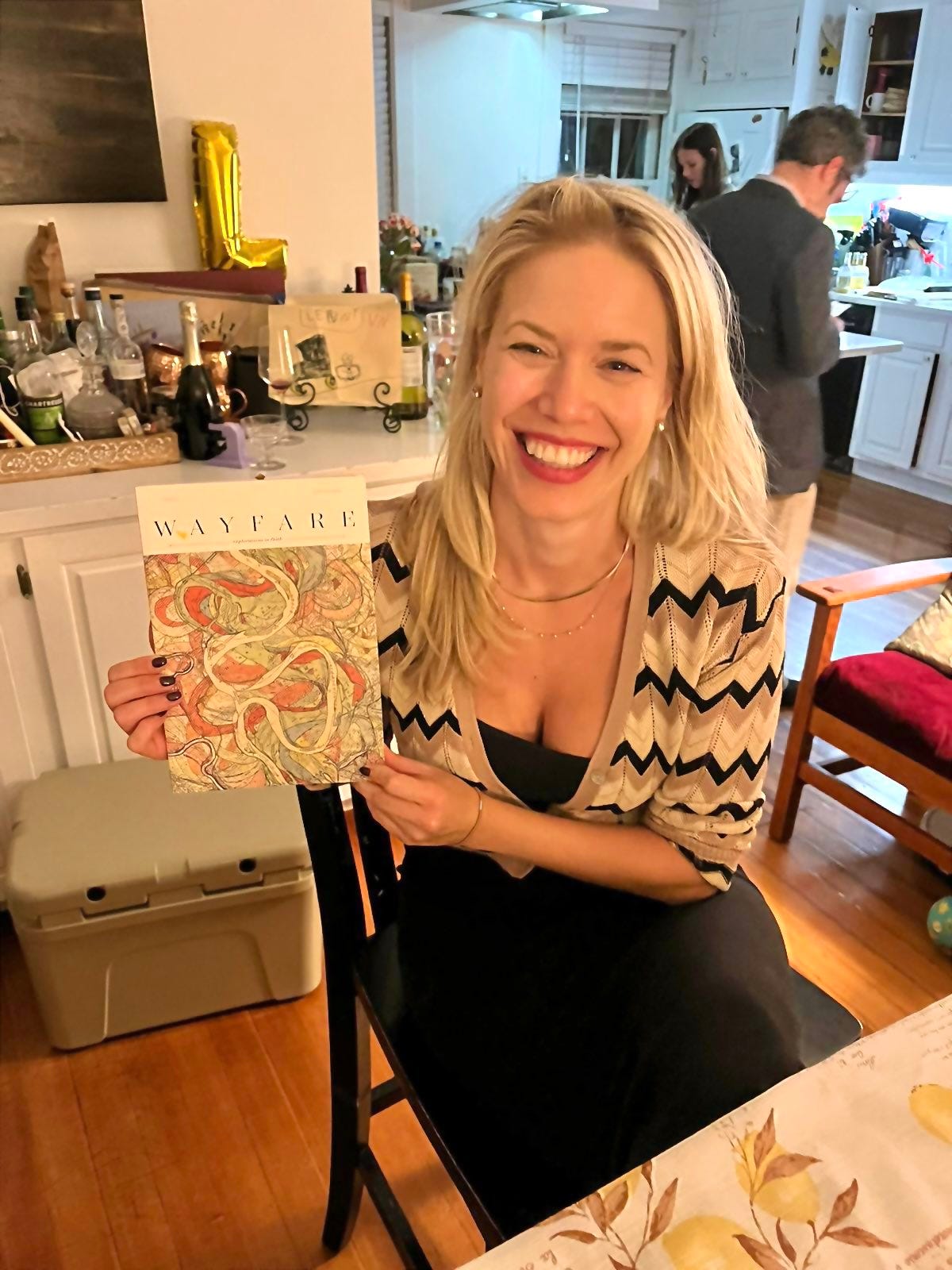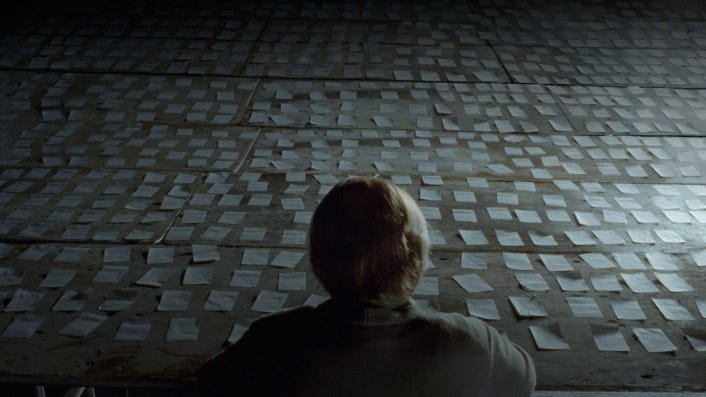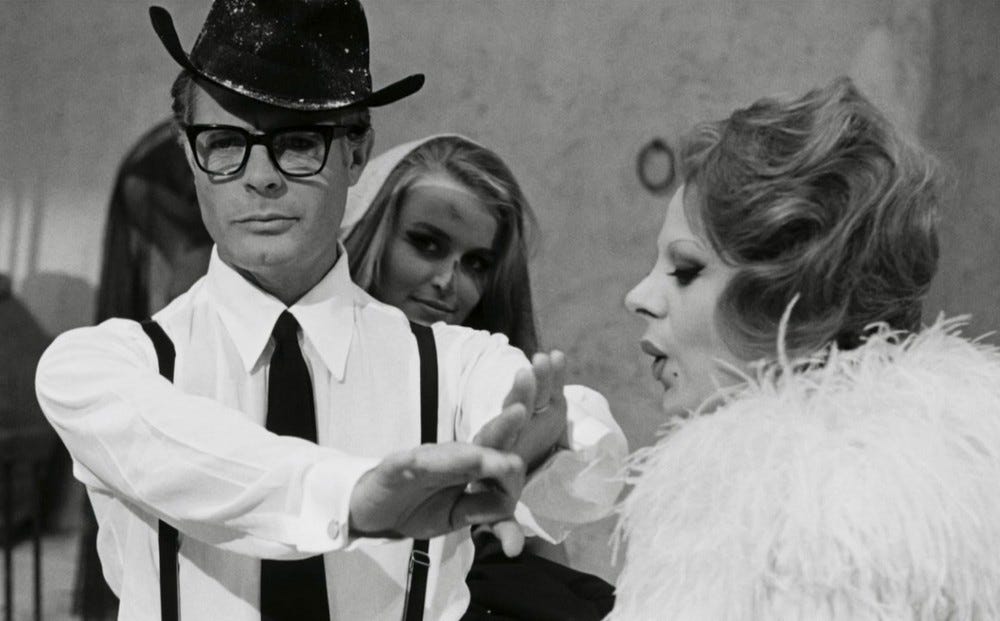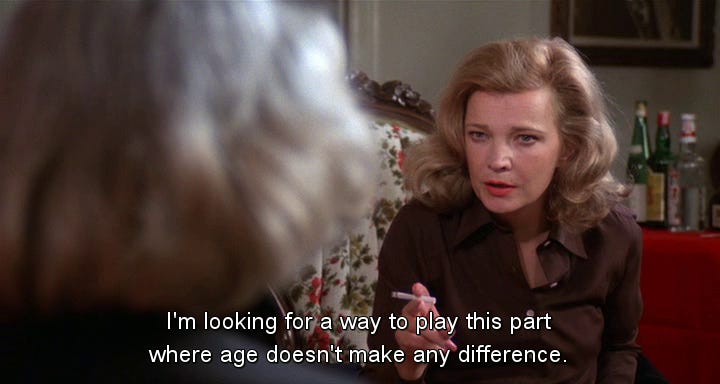Anna Gát: What to Read This Weekend #17
Russia, Einstein, Rorty/McIntyre, social media, UFOs, libertarianism's legacy, smoke over New York, the elusive Tech Right, working girls, Leigh's 'Naked', innovating in India, Stephen Fry on art...
"The great end of life is not knowledge, but action. I believe that it is the duty of each of us to act as if the fate of the world depended on him… We must live for the future, not for our own comfort or success.” – Admiral Rickover (via Sam Altman)Hello everyone! A report from the battlefield:
I’m back in stormy Lisbon where my American friends are determined to take me out to a “festival or sangria and sardines'“ which, if nothing else, solves the “what to expect?'“ question.
On the plane coming back from the US, I finally watched Tár, which I, to a surprising degree, loved! I wrote two Twitter threads about it — about the movie and about the genre. I’ll speckle this edition of the digest with photos from the movie as well as similar works in the genre. I’m currently reading the Tár screenplay, a delight. You can also read a good analysis of the movie as a “gothic horror” here. I happen to agree with it.
At Interintellect, we’re putting together exciting perks for our devoted community members - discounts on paid newsletters, Noah Smith, Erik Hoel, Emily Oster, Henry Oliver, as well as magazines such as The Point. Coming soon! You can become a member here.
You’ll find some excellent pieces to read this weekend below. I hope you’ll enjoy them, and if I missed something or you have a comment, I’m at your avail at anna@interintellect.com.
Let’s read!
As Smoke Darkens the Sky, the Future Becomes Clear
[The phenomenon] is harrowingly new: Between 2006 and 2010, according to one recent preprint, there was hardly any place in the West where smoke from other counties contributed as much as 10 percent of local air pollution; between 2016 and 2020, smoke from distant fires was contributing as much as half of local air pollution across huge swaths of the region… Across the country, the number of people exposed to what are sometimes called extreme smoke days has grown 27-fold in just a decade, and exposure to even-more-extreme smoke events has grown 11,000-fold.
David Wallace-Wells; New York Times
Waluigi, Carl Jung, and the Case for Moral AI
Smarter AI systems may pretend to care about human morality and then change their minds, or drift away from human values, preferring to destroy sentient life and tile the universe with paperclips. There is also the question of which morality to teach the AI…
Nabeel Qureshi; WIRED
The Long Afterlife of Libertarianism
Rand’s novels helped formalize the movement’s outright celebration of billionaires, and Nozick’s book “Anarchy, State, and Utopia” (1974) argued that the state ought to have a minimal role—largely restricted to policing wrongdoing and curbing externalities—and that “taxation of earnings from labor is on a par with forced labor.” Rothbard elaborated an absolutist theory of “anarcho-capitalism.”
Benjamin Wallace-Wells; The New Yorker
Working Girl - On selling art and sex
I realized I was making all these mental calculations that felt really gross to me whether to participate or not in the show. Will it benefit me or not? I mention this in the text, but it’s obviously fucked up that the curator came from an arms-dealing, art world family. I knew this, but I also wanted to show my work. I also had to consider whether this would affect my reputation. Will people think poorly of this curator because of his family, and would that affect me by association?
Terry Nguyen in conversation with Sophia Giovannitti, author of Working Girl (Verso, 2023); Dirt
Kafka’s diaries
By day an insurance official, by night an insomniac scribe of the liminal space between waking and dreaming, he denied his capacity to negotiate the conflict between his breadwinning job and his literary calling.
Ross Benjamin; Aeon
Well, What Is the Point of Prizes?
Most writers I know live at least somewhat precariously, often paycheck to paycheck, and as freelance budgets shrink, magazines shut down, and funding dries up, those paychecks become scarcer and scarcer. Prize money can often make the difference between a terrifying squeeze and the room to finally take a breath. As writer and illustrator Aubrey Hirsch said, “I won two grants in 2022 that are giving me the cushion to keep freelancing full time.
Amber Sparks; Slate
Understanding the Tech Right
One can think of tech as the inverse of academia…
One can think of institutions as existing on a spectrum of bureaucratization. At one end, most centered around producing useless paperwork, is the modern university. At the other end of the spectrum is starting your own company, where it can just be you and your friends. Generally, the more bureaucratized the institutions, the more they appeal to conformists.
Richard Hanania
Stephen Fry: Speech Given at a Dinner for the Royal Academy Summer Exhibition (2010)
I think it is a relief to know that paintings and sculptures are not crossword puzzles to be solved or allegories to be read or tests to be passed, but it still does not make it easier to walk around a public gallery without being aware of the others there and without being aware of oneself and the figure one cuts. I think that is why so many people look cross in art galleries. They are either scowling at those loud, disrespectful parties of continental schoolchildren, or they are pursing their lips at a fellow Briton they deem to be showing off or they are frowning at someone who, like a bad golfer, is ahead of them and playing through too slowly. Or perhaps they are looking cross because it is art and art is supposed, isn’t it, to be serious and important and therefore demands a serious and important face?
Stephen Fry
Alasdair MacIntyre and Richard Rorty’s Lifelong Argument
For MacIntyre, the human telos is what Aristotle called “rational happiness.” That sounds unobjectionable, even banal. But why is reason more essential to humans than, say, love or beauty? Why is it more universal than suffering or nobler than sympathy or courage? And what is an essential nature, anyway? Is it something every member of the species has?
George Scialabba; The Nation
Revealing Sylvia Plath - Love, loneliness and poetry in the writer’s correspondence
Was it Ted’s departure that licensed Sylvia to stop “dancing around the house, using the polishing-duster, the dish cloths, the oven regulator thermometer (a blessing especially for baking) & the marvellous meat-thermometer”, and become a major poet? When she did so, the ugliness and disenchantment of domestic experience – the abjected fact of her earlier life – became a resource: “There’s a stink of fat and baby crap. / I’m doped and thick from my last sleeping pill”.
Hannah Sullivan; Times Literary Supplement
Johnny in the City - Mike Leigh’s ‘Naked’
“The motivation to talk it out is something I certainly empathize with. It’s born of a frustration with things, a need to get the ideas out, and also to confront things. It’s complex about [Johnny]. I don’t think it would have been a bad thing if he had gone to university. The point is, Is it a waste? The truth is because he’s an outsider, because he doesn’t know anything to do, he has time to read and to think, and it’s all there wanting to get itself out.” —Mike Leigh
Manohla Dargis; Artforum
Stop trying to make a "good" social media site
Eventually, all media dictatorships end.
Erik Hoel; The Intrinsic Perspective
Peter Weir – ‘Dead Poets Society’
Weir’s film is one of the best educational dramas of the 20th Century, even if its all-white middle-class environment is undoubtedly alienating: The power of literature ought to be available to all.
Thomas Leatham; Far Out Magazine
Françoise Gilot, Artist in the Shadow of Picasso, Is Dead at 101
Ms. Gilot herself preferred to leave judgments about her art and life to others. As she told The New York Times in a profile of her published in January 2022, “I am not going to make a big deal of being more than what I am — or less.”
From our Terrible Headlines category - Alan Riding; New York Times
Vision Pro
My experiences with hand tracking-based VR interfaces have been uniformly unpleasant. Without tactile feedback, the experience feels mushy and unreliable. And it’s uncomfortable after tens of seconds… The visionOS interaction model dramatically shifts the role of the hands. They’re for basically-discrete gestures now: actuate, flick. Hands no longer position the pointer; eyes do. Hands are the buttons and scroll wheel on the mouse. Based on my experiences with hand-tracking systems, this is a much more plausible vision for the use of hands, at least until we get great haptic gloves or similar.
The great Andy Matuschak
Ideas of India: The Creator Economy
How hard is it to form a community? You’ve done this multiple times... We all got to know each other mainly through the internet. Eventually, we all got together in different cities and hung out and exchanged ideas and books, but that was how it started. You’ve been part of this community building many times over now. How difficult is it, and what does it take to build that in a way that’s useful both to you and to all the people who are in it?
Shruti Rajagopalan and Amit Varma; Discourse
Nada Bakri on Dealing With Losing Her Husband and Father
I have a lot to be thankful for. But in the face of death, everything pales: Priorities shift; convictions, no matter how deep they run, falter; and hope dims. So does the ability to be grateful, to hold on to happy memories and to dream of better days.
Nada Bakri; New Lines Magazine
The Simplest Explanation for the Einstein’s Famous Equation, E=mc²
The equation has wide-ranging applications, from understanding nuclear reactions to explaining the behavior of particles at high speeds. In nuclear reactions, such as those that occur in the Sun or in nuclear power plants, a small amount of mass is converted into a tremendous amount of energy. This conversion is responsible for the immense energy released in nuclear explosions and the power generated by nuclear reactors.
Its simplicity belies its profound implications, making it one of the most iconic equations in physics.
Areeba Merriam; Cantor’s Paradise
The 19th-Century Trippers Who Probed the Mind
In a famous and graphic example, when Isaac Newton wished to establish whether a change in the curvature of the eye would present a distorted image to the perceiver, he took a large needle, or bodkin, and stuck it as far into his eye as he could. He then described in detail the colored circles that appeared to him. It was not possible to present direct evidence for these shapes, since they only existed in Newton’s mind, yet his fellow philosophers were not obliged simply to accept Newton’s word for them. The experiment was described in such a way that any skeptic, if they so wished, could try it out on themselves.
Mike Jay; Nautilus
Social Media Age Requirements Are Anti-Free Speech
The laws and bills try to address concerns about unauthorized access by limiting the use and retention of age verification data. But anyone who has paid attention to the steady drumbeat of data breaches over the past decade knows that no company can guarantee the safety of personal information.
Jeff Kosseff; The Daily Beast
Caltech prototype funded by O.C. donor beams solar power from space — a terrestrial first
The 50-kilogram Space Solar Power Demonstrator (SSPD-1) is testing three key technologies that would make it possible to convert sunlight into electrical energy and then send it in the form of microwaves to receivers anywhere on the planet.
Sara Cardine; Los Angeles Times
Inside Russia’s forever war with the West
Over the last two decades, both Kremlin-funded and grassroots organisations have worked to embed the Great Patriotic War within the everyday fabric of Russian life, spanning popular culture, leisure activities, education, media, even tourism and stationery. This includes Second World War theme parks and ‘preserver of history’ summer camps, where young Russians learn how to wage online information warfare against the falsifiers of (Kremlin-approved) ‘historical truth’.
Jade McGlynn; Engelsberg Ideas
‘A hyena in petticoats’ - Feminist writers who fought against the masculine assumptions of their times
A Vindication of the Rights of Woman (1792) was difficult and serious, but Wollstonecraft’s life was as chaotic and thrilling as a gothic novel. She called herself “the first of a new genus”, an independent woman of reason, and so she was. But she wanted emotional and sexual liberation for women as well as education and political rights. Her sober writings and tumultuous life highlighted the contradictions between theory and practice that have challenged feminists ever since. As Virginia Woolf wrote in 1929, “she is alive and active, she argues and experiments, we hear her voice and trace her influence even now among the living”.
Elaine Showalter; Times Literary Supplement
Intelligence Officials Say U.S. Has Retrieved Craft of Non-Human Origin
The non-human intelligence phenomenon is real. We are not alone,” [Jonathan Grey] said. “Retrievals of this kind are not limited to the United States. This is a global phenomenon, and yet a global solution continues to elude us.”
Leslie Kean and Ralph Blumenthal; The Debrief
America loved Tina Turner. But it wasn’t good to her.
What remains, in part, is indifference, a blindness to Black women’s suffering, their ability to feel pain, to be raped, to be regarded as something other than profit centers. Turner, of course, was too captivating to ignore. She had the greatest gams ever seen on a human being, a voice to match, style for days, and an indomitable stage presence. At first glance, she was the embodiment of American grit, a person many saw as proof of concept for the nation’s obsession with rugged individualism and bootstrapping.
However, it’s vital to remember what preceded Turner’s embodiment of lively, joyous liberty: a disassociation from the fear of losing her life.
Soraya Nadia McDonald; Andscape
On the Iconic First Line of One Hundred Years of Solitude
So what has García Márquez done differently? Consider the next phrase: when he was to face the firing squad—here’s where it all begins to get a little crazy. First of all, here we are, in the opening line of a novel (a long novel at that), and we’re side by side with a character who’s facing a firing squad. One moment: cosy armchair in your living room, maybe with a cup of tea next to you, say a crackling fire, the cat at your feet; the next moment: firing squad. Secondly, we are presented with knowledge of something which is usually unknowable, the moment of one’s own death.
Claire Adam, Literary Hub





